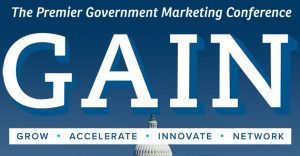 Robotic Process Automation (RPA). It may sound like a premise to a movie where robots take over the world, but it's very real and it's helping organizations realize modernization goals. Despite the name, RPA has nothing to do with robots. It is about software that uses artificial intelligence (AI) to automate high-volume, repetitive tasks. This can include queries, calculations, and maintenance of records and transactions.
Robotic Process Automation (RPA). It may sound like a premise to a movie where robots take over the world, but it's very real and it's helping organizations realize modernization goals. Despite the name, RPA has nothing to do with robots. It is about software that uses artificial intelligence (AI) to automate high-volume, repetitive tasks. This can include queries, calculations, and maintenance of records and transactions.
In government, RPA is already being implemented in a wide variety of applications.
- Inspections - As agencies look to modernize the way they perform inspections of the water we drink, the roads we travel, and the buildings we travel to, they are using RPA to move off paper-dependent processes.
- Claims review -- RPA is built into an intake tool used by the Centers for Medicare and Medicaid that ingests records, automating the process and identifying potential problems.
- Procurement - RPA is being used to automate and streamline the close-out process of government contracts, freeing up staff to work on actual programs, rather than spending time documenting that work.
- IT asset management - Managing IT assets is a combination of automated and manual tasks. The introduction of RPA greatly reduces the need for manual intervention when it comes to enforcing governance and process, freeing up staff to work on mission-focused projects rather than tracking the technology used on those projects.


 With another Government Fiscal Year ramping up, we're starting with a whole new year of budget and contract opportunities in the government market. As we've written here before, the acquisition and procurement process in government is evolving to adapt to the
With another Government Fiscal Year ramping up, we're starting with a whole new year of budget and contract opportunities in the government market. As we've written here before, the acquisition and procurement process in government is evolving to adapt to the  From time to time GovEvents will come across information we feel our members and audience would benefit from. Here's something we wanted to share:
From time to time GovEvents will come across information we feel our members and audience would benefit from. Here's something we wanted to share: The Department of Homeland Security's
The Department of Homeland Security's  As we begin to slide into the last quarter of the year and start planning for 2020, the human inclination is to go bigger and better next year. But, we would challenge you to look at how going smaller can actually lead to a greater impact. Smaller events can deliver the
As we begin to slide into the last quarter of the year and start planning for 2020, the human inclination is to go bigger and better next year. But, we would challenge you to look at how going smaller can actually lead to a greater impact. Smaller events can deliver the 
